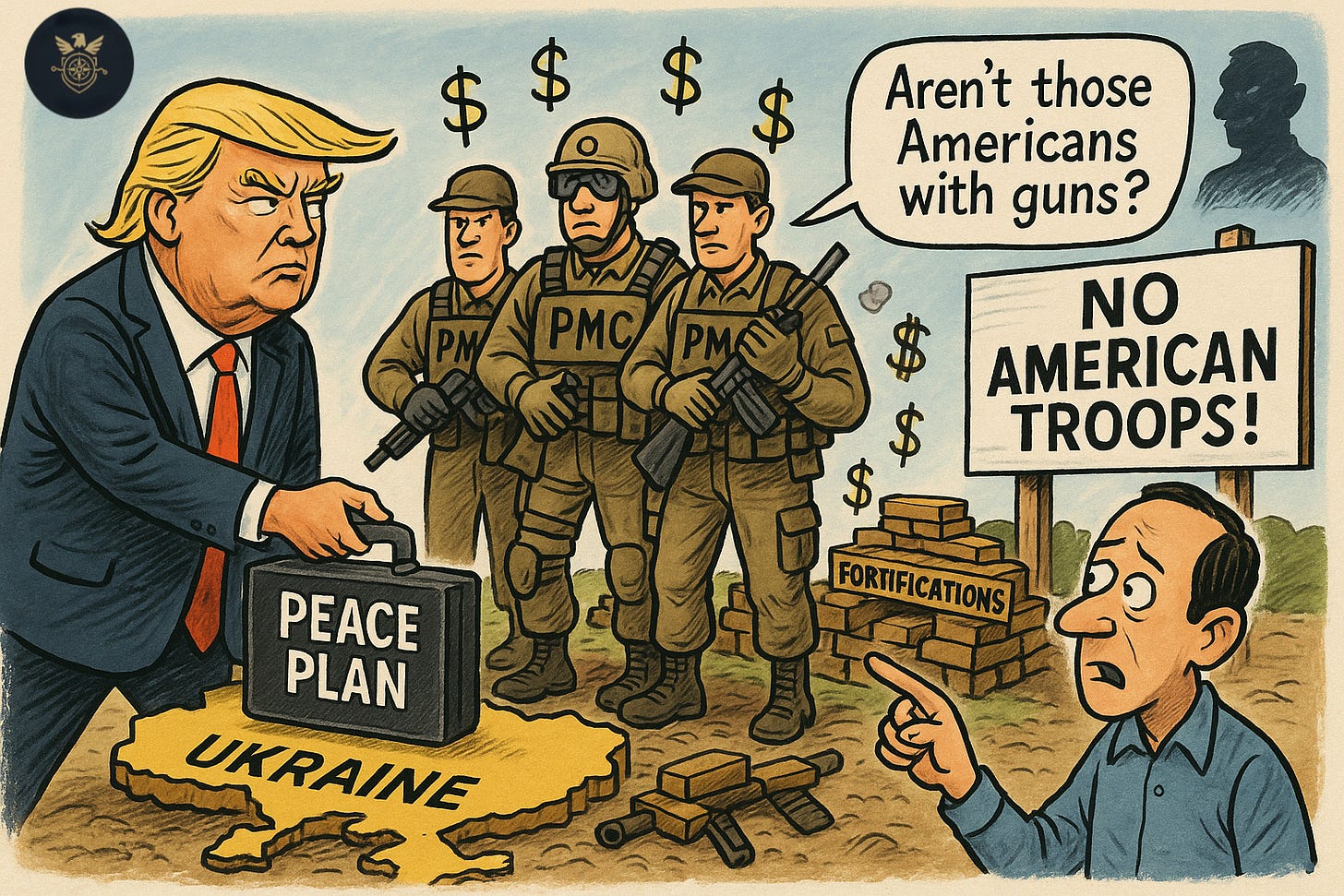Since When Do PMC’s Make the World a Better Place
So here we go again. Another war-torn country, another “peace plan,” and—surprise, surprise—the solution isn’t diplomacy, isn’t reconstruction, isn’t healing. It’s private armies.
The latest reports from The Telegraph outline how, once a ceasefire in Ukraine is declared, U.S. private military contractors (PMCs) may be deployed to the country. The reasoning is as predictable as it is cynical: Donald Trump has promised his supporters that no “American troops” will be stationed in Ukraine. But apparently, American citizens carrying AR-15s and operating under a corporate logo instead of the Stars and Stripes don’t count.
It’s a loophole that exposes the rotten truth about PMCs: they are a way for governments to wage war, profit from conflict, and sidestep accountability all at once.
A Business Model Built on Blood
PMCs are not new to the scene. Iraq and Afghanistan became gold mines for companies like Blackwater (later rebranded after massacres and scandals). They were called “contractors,” but everyone knew what they were: mercenaries with better PR. They killed civilians, undermined legitimate armed forces, and left behind a trail of lawsuits and bloodstains.
Now the same model is being proposed in Ukraine, dressed up as “deterrence” and “protection of American businesses.” Strip away the euphemisms, and the real agenda is clear: profit from war while insulating governments from blame.
Bypassing Democracy
Trump’s maneuvering here is especially revealing. He knows his base despises “foreign adventures.” So he pulls a trick: outsource the fighting to corporations. That way, he can boast about keeping “no boots on the ground,” while in reality American passport holders are very much on the frontlines—just not wearing official uniforms. This is not policy; it’s marketing.
And let’s be honest: if these mercenaries are killed, do we think their deaths will be treated with the same gravity as those of U.S. soldiers? Or will they be written off as “contract losses,” buried under NDAs and corporate silence?
Making Peace with More Guns
The absurdity of calling this a “peace plan” cannot be overstated. We’re told PMCs will “rebuild fortifications,” “protect U.S. businesses,” and “train Ukrainian forces to NATO standards.” That’s not peacekeeping. That’s entrenching militarization.
Add to that the whispers of a no-fly zone—first over Lvov, then over Kiev—and suddenly the entire architecture of “peace” looks like a blueprint for escalation. NATO air defenses and Western jets in Ukraine? Private armies building bases along the border? This isn’t calming tensions with Russia—it’s pouring gasoline on the fire.
Mercenaries Don’t Defend Democracy
Let’s not kid ourselves. PMCs don’t fight for freedom, or democracy, or stability. They fight for contracts. They fight where the money flows. And when they make mistakes—when civilians get caught in the crossfire—there’s no congressional oversight, no court martial, no accountability. Just denials, rebranding, and the next war.
So, since when do PMC’s make the world a better place? The answer is simple: never. They are a symptom of a global order where war is a business, peace is a slogan, and the lives of ordinary people are bargaining chips.
The Russians demanded no foreign military in Ukraine. PMC’s won’t change their demands.
And with 100,000 extra Russian soldier arriving on the battlefield Ukraine is going to have a very, very hard time.


